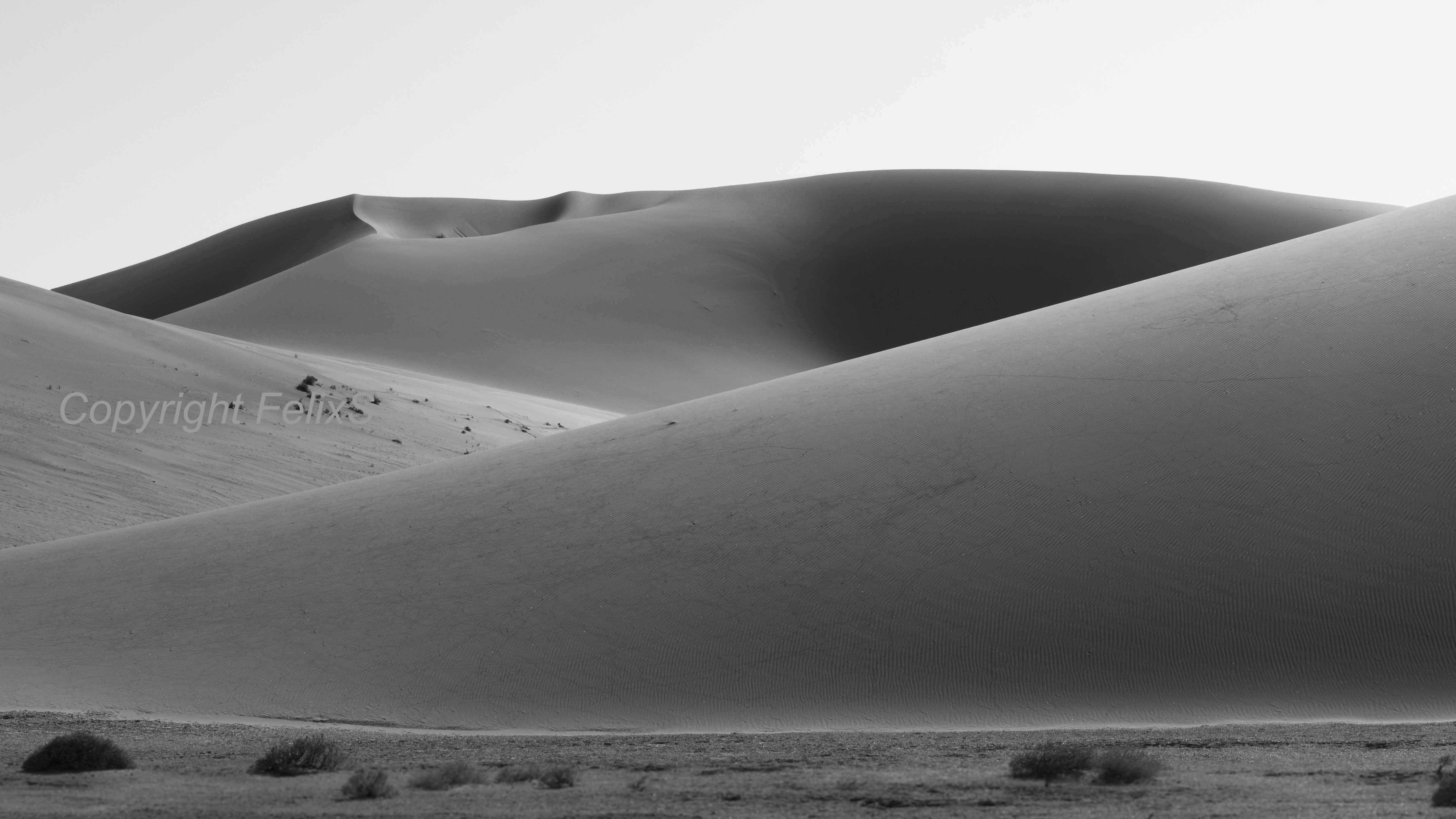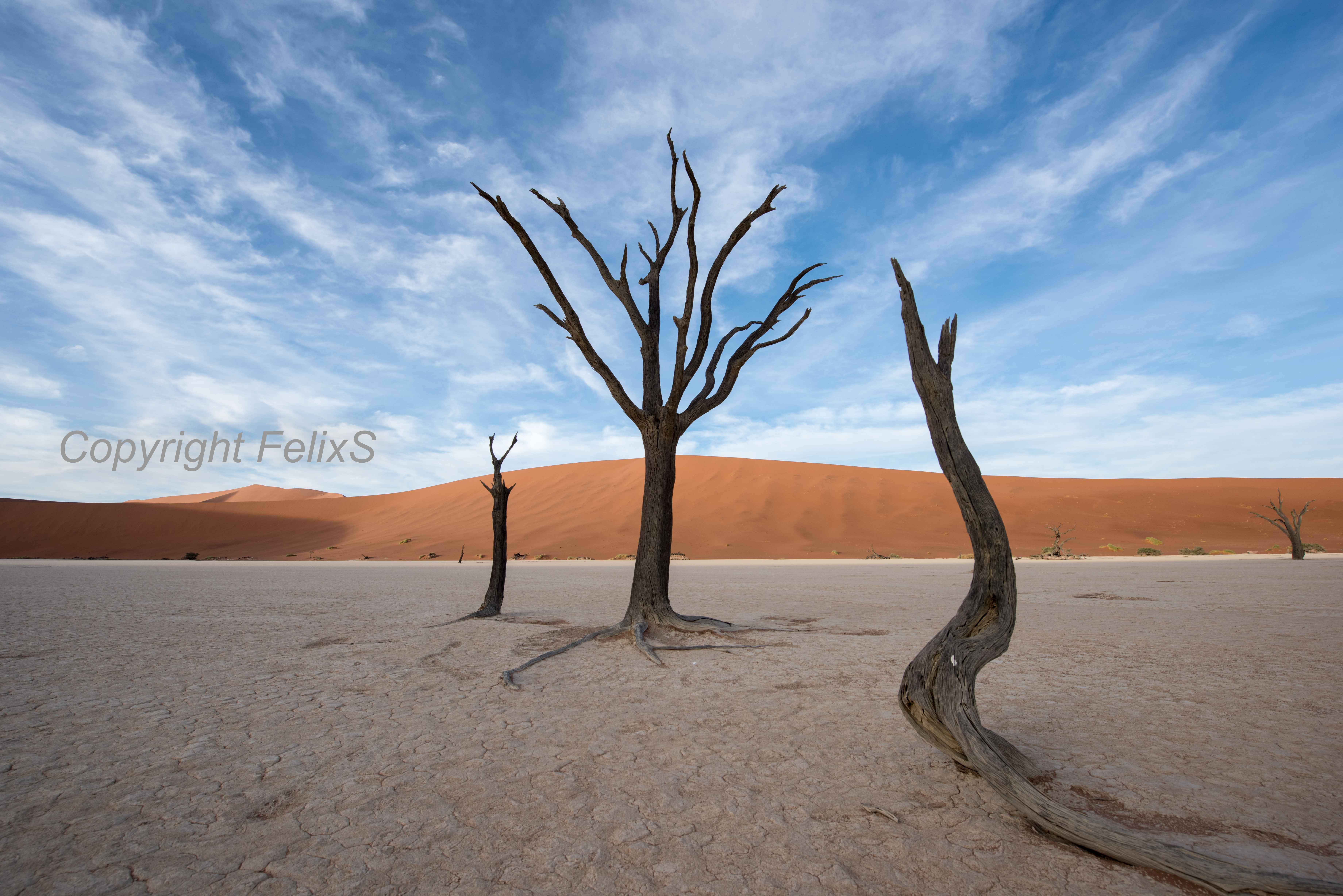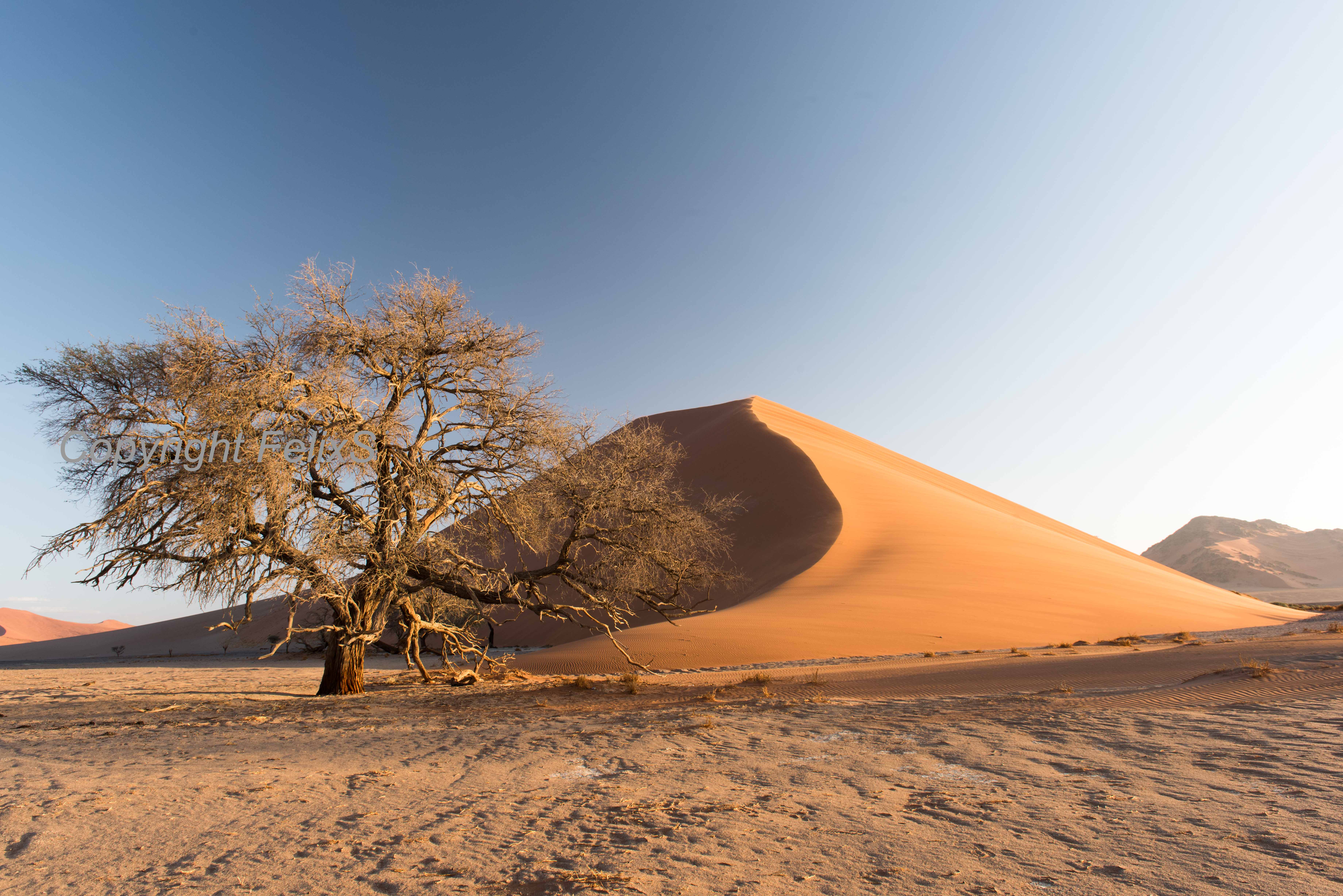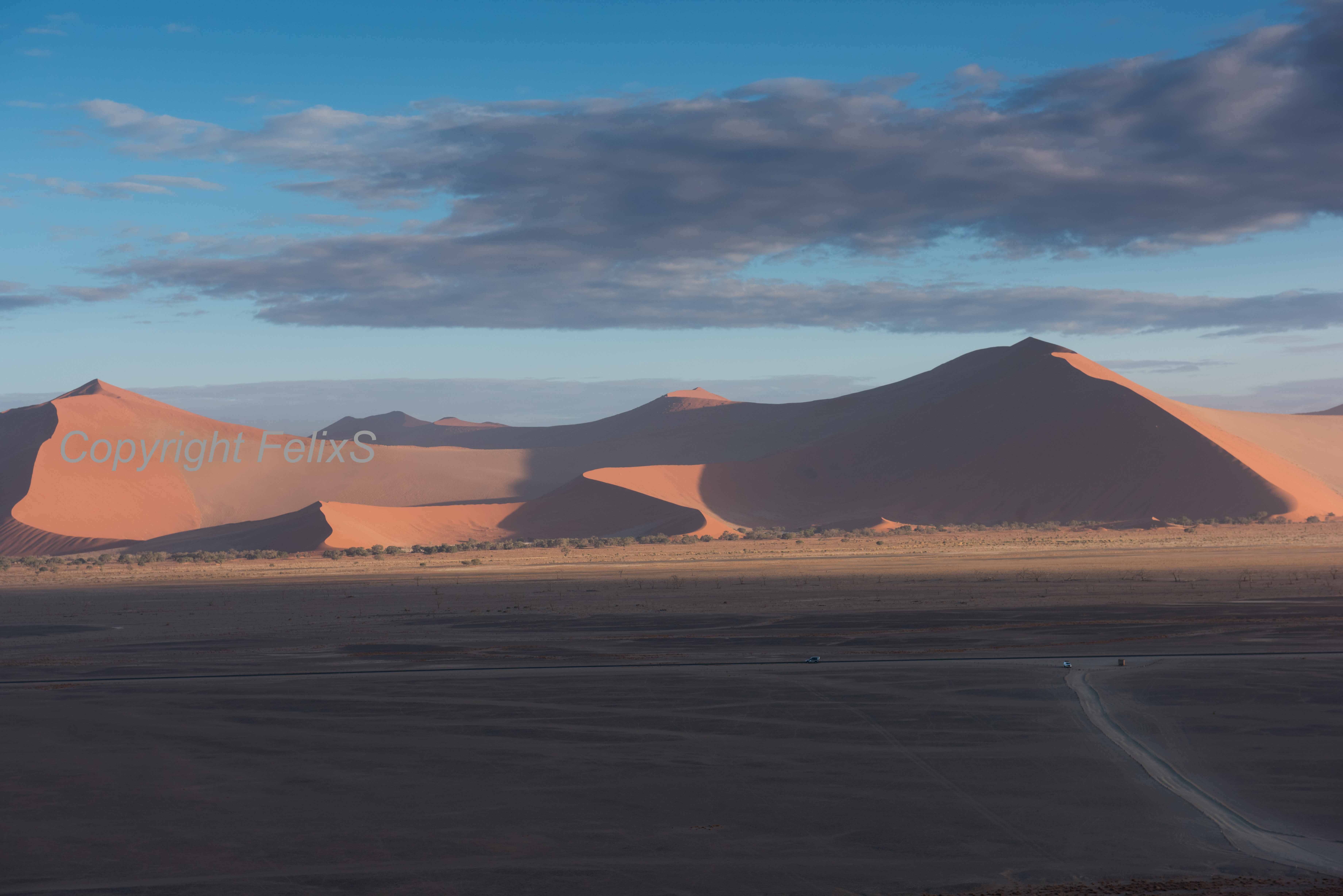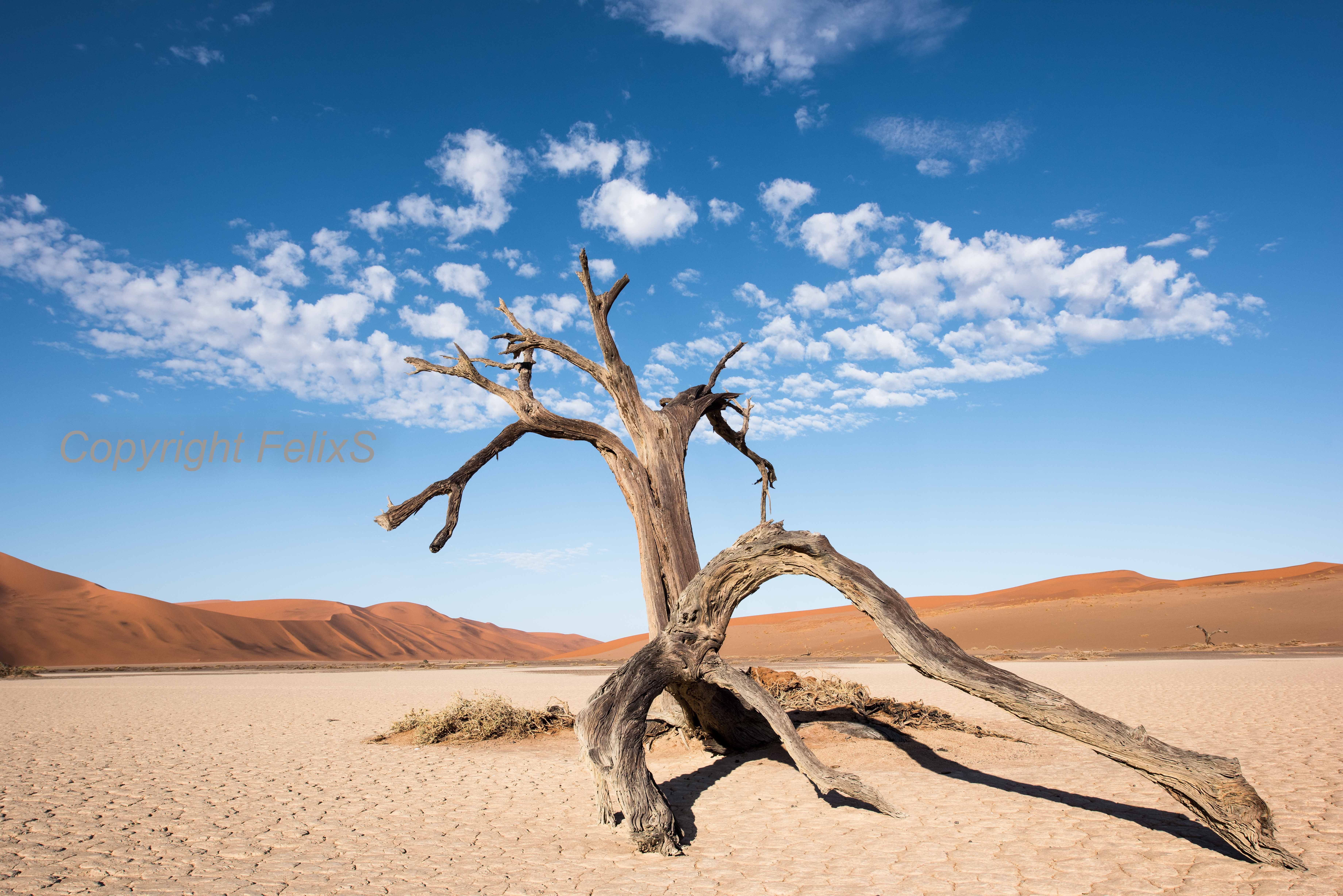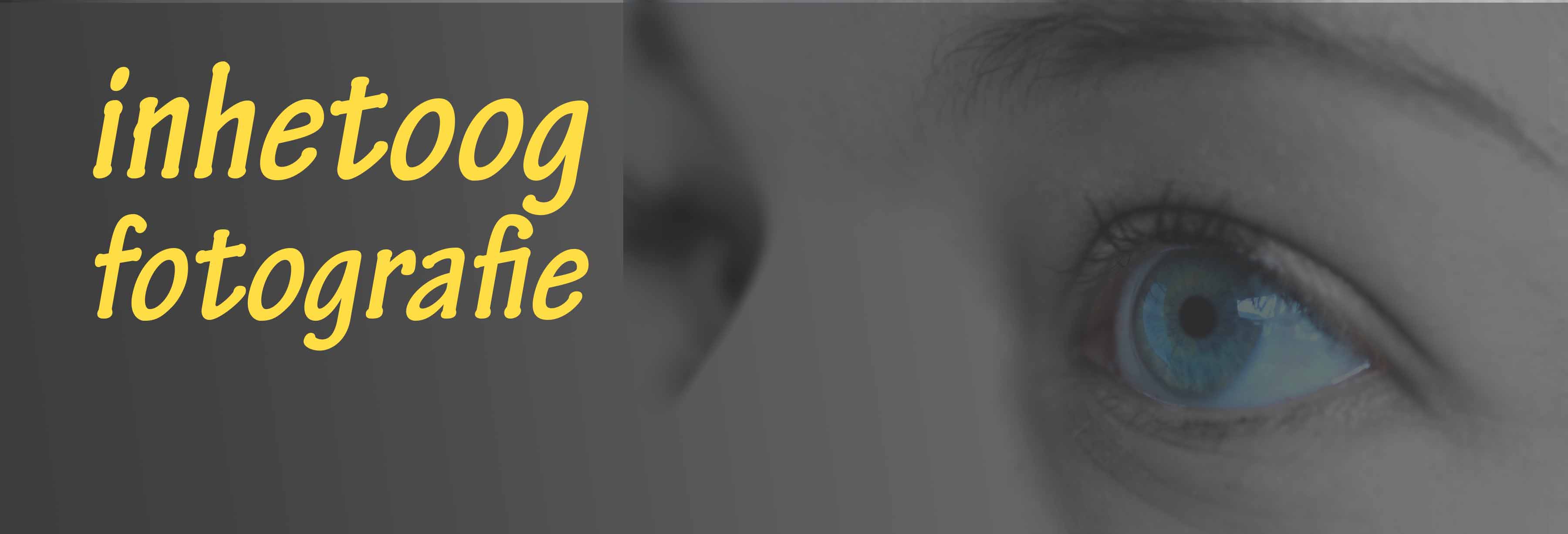
oog voor details
Foto's bestellen neem Contact op
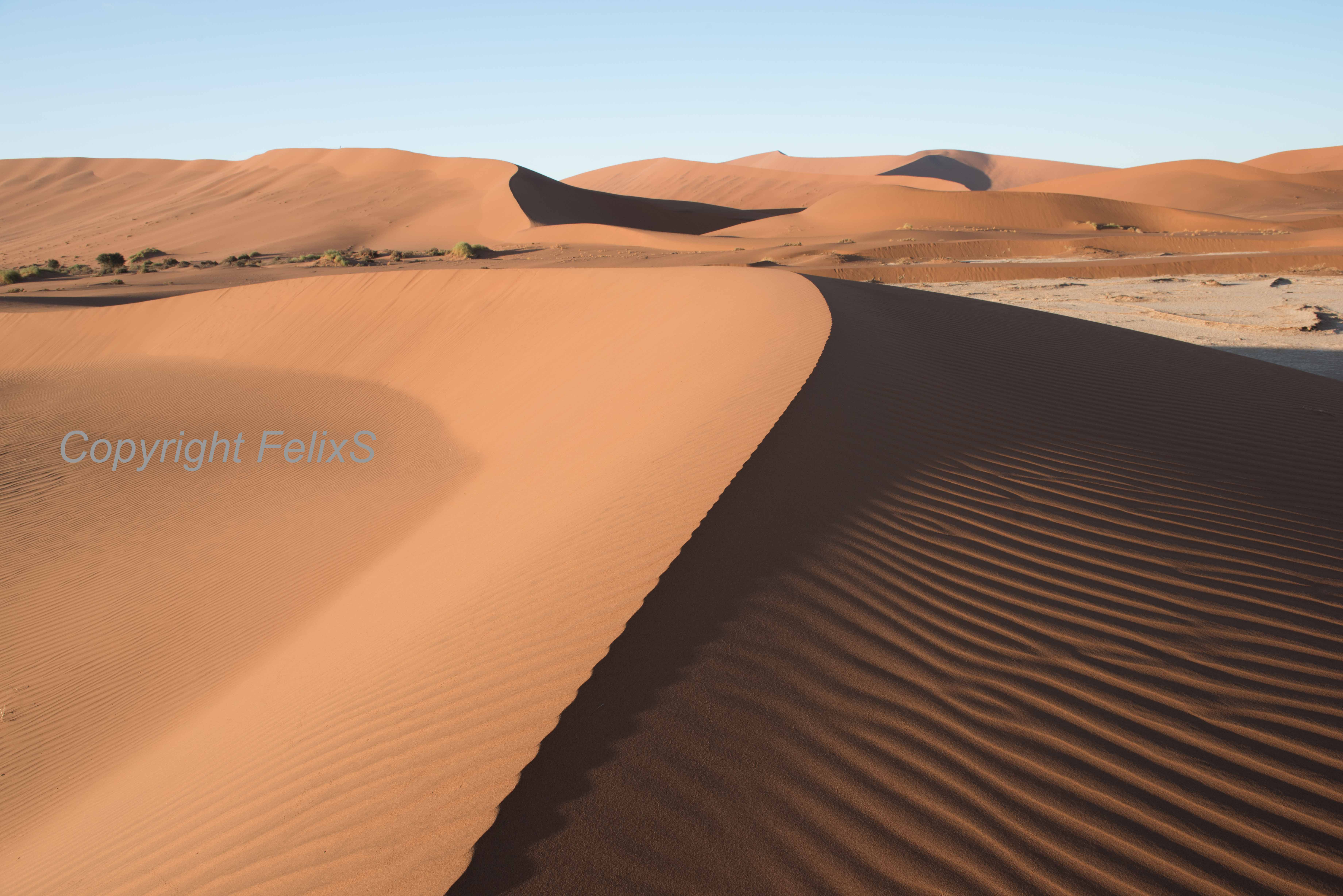
The Sossusvlei is one of the most famous tourist attractions in Namibia. As a photographer you can have a wonderful time in this region. On my road trip I originally would spend three nights here. In the end it became six, because I came back here later, when it turned out that the north of Namibia was inaccessible for me due to the continuing heavy rainfall. Rain in the dessert is not so likely so I decided to return to sesriem.. On my second visit to Sossusvlei I mainly went to Deadvlei.
Webshop sossusvlei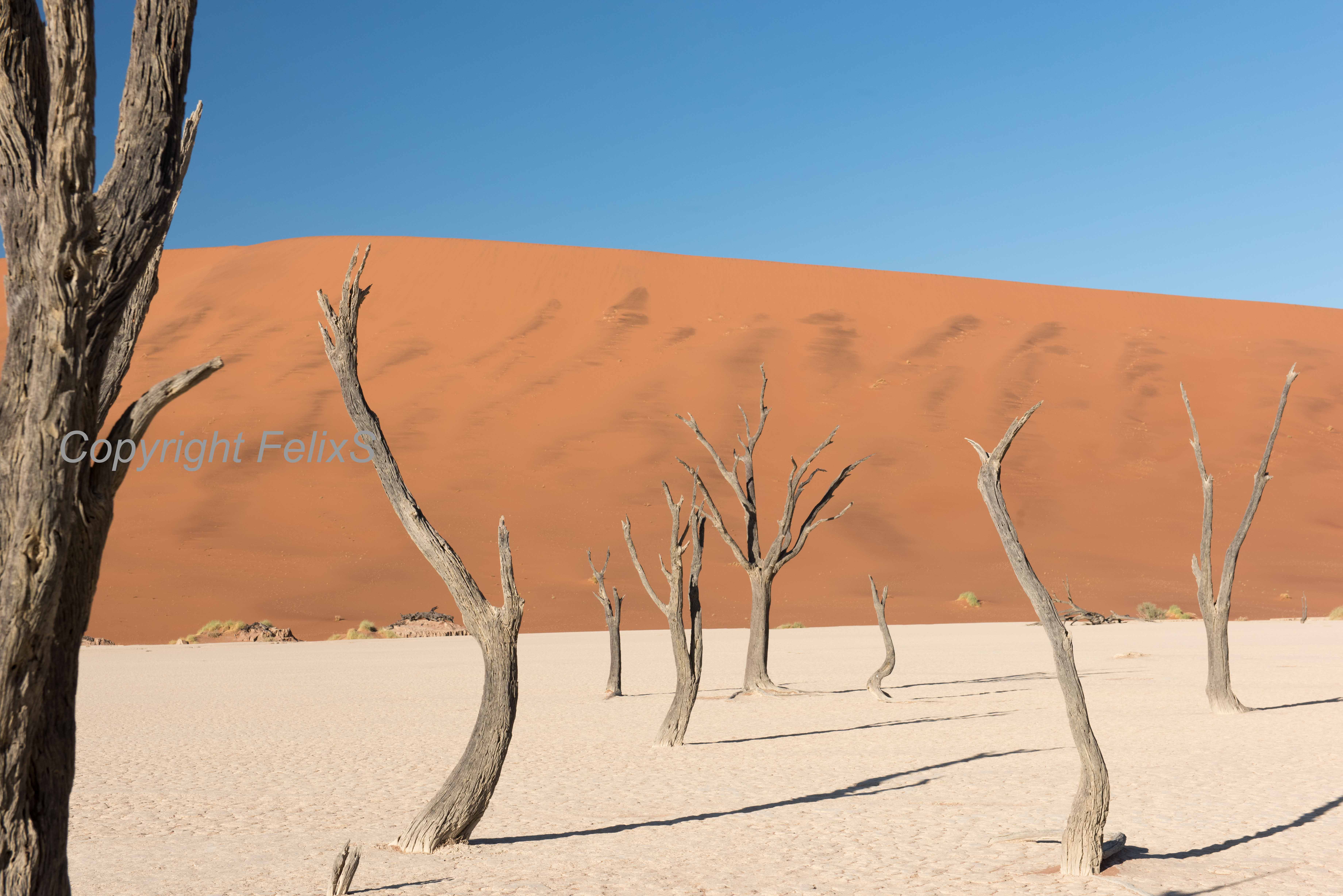
I stayed at the campsite within the gates of Sossusvlei, so that I could reach the vlei before sunrise and could stay until after sunset and still make it to the inner gate before closing.
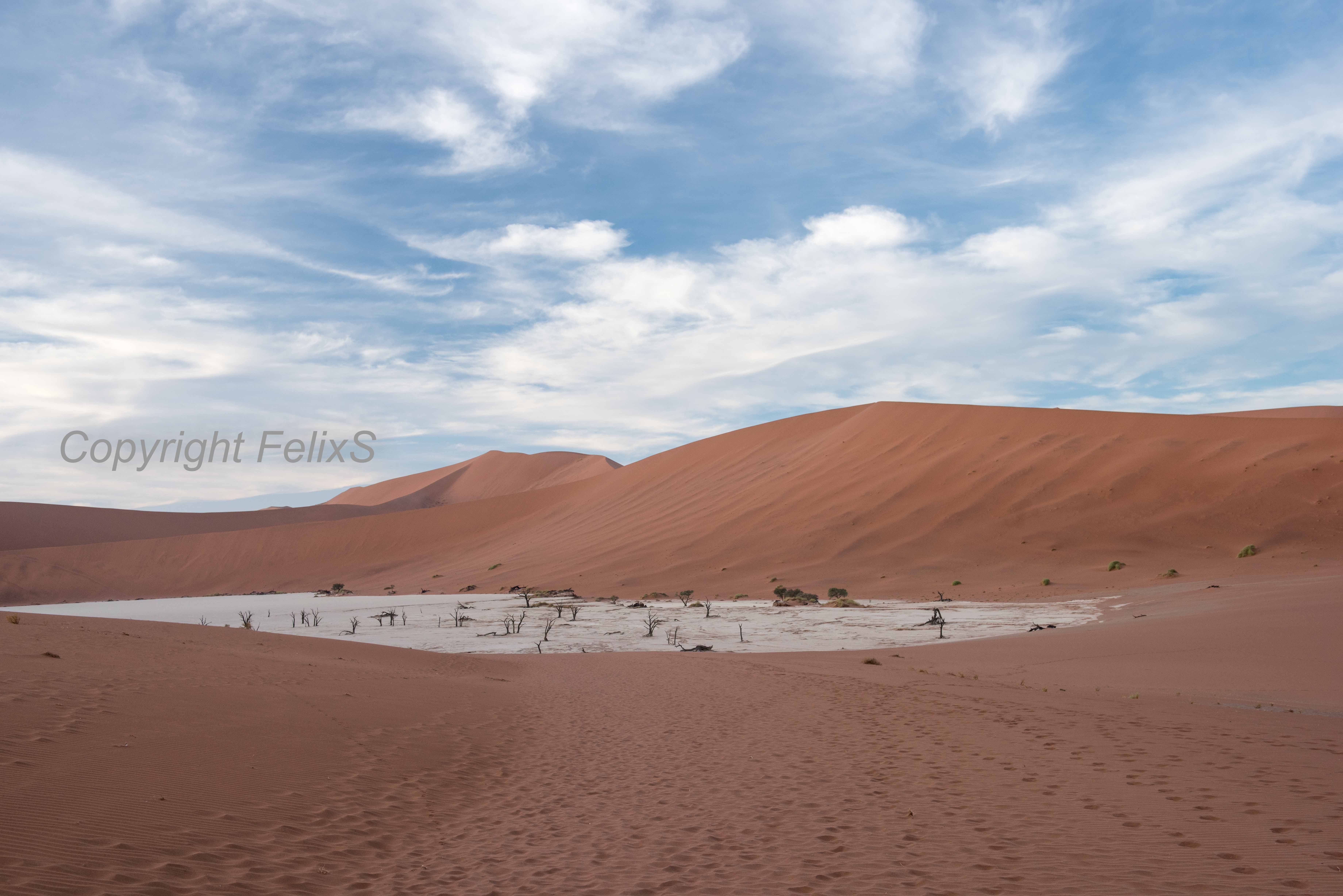
From the inner gate there is a road of about 60 km to the place where you can access the deadvlei, sossusvlei and hidden vlei. The maximum speed here is 60 km because of the animals, so you are on your way for about an hour.
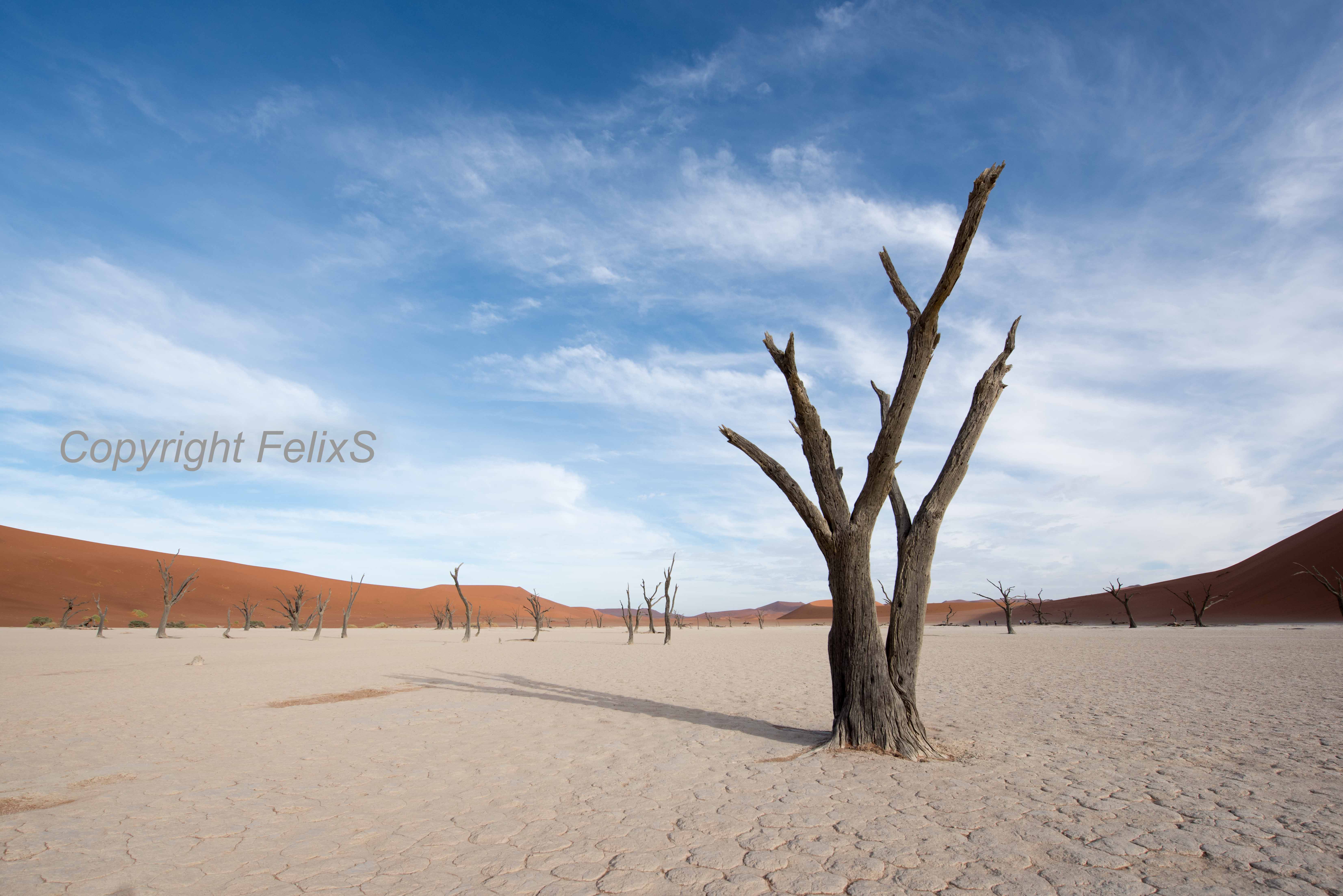
As a photographer you have to use the moments around sunrise and sunset. The rest of the day the sun is too bright to take interesting pictures. When the sun is low its backlight is perfect to take pictures that emphasize the layering of the dunes. At sunrise and sunset the shadow of the dunes shifts through the valley, leaving pieces in the shadow and other parts still in full sun. You can make good use of this. In google earth you can run an animation to see how the shadows will shift.
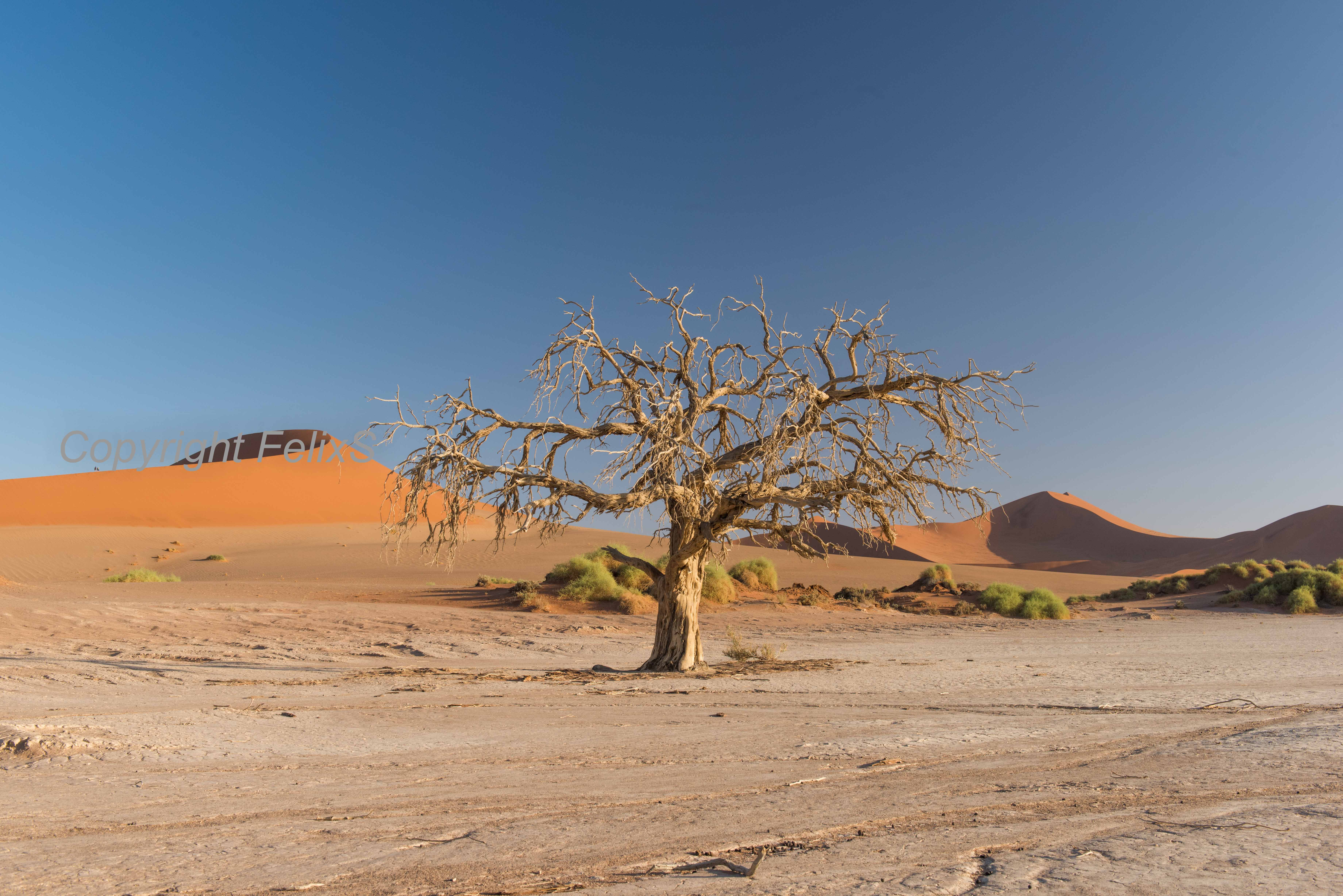
Climbing dunes, which many tourists do, is less interesting for the photographer. Dune 45 which is located 45 km from the inner gate is often climbed. I photographed on and around dune 39 (39 km from the gate), because there are hardly any tourists, so you do not have any people in your image and there are no traces in the sand except those made by nature. Also there is a tree at the foot of the dune that completes the composition.
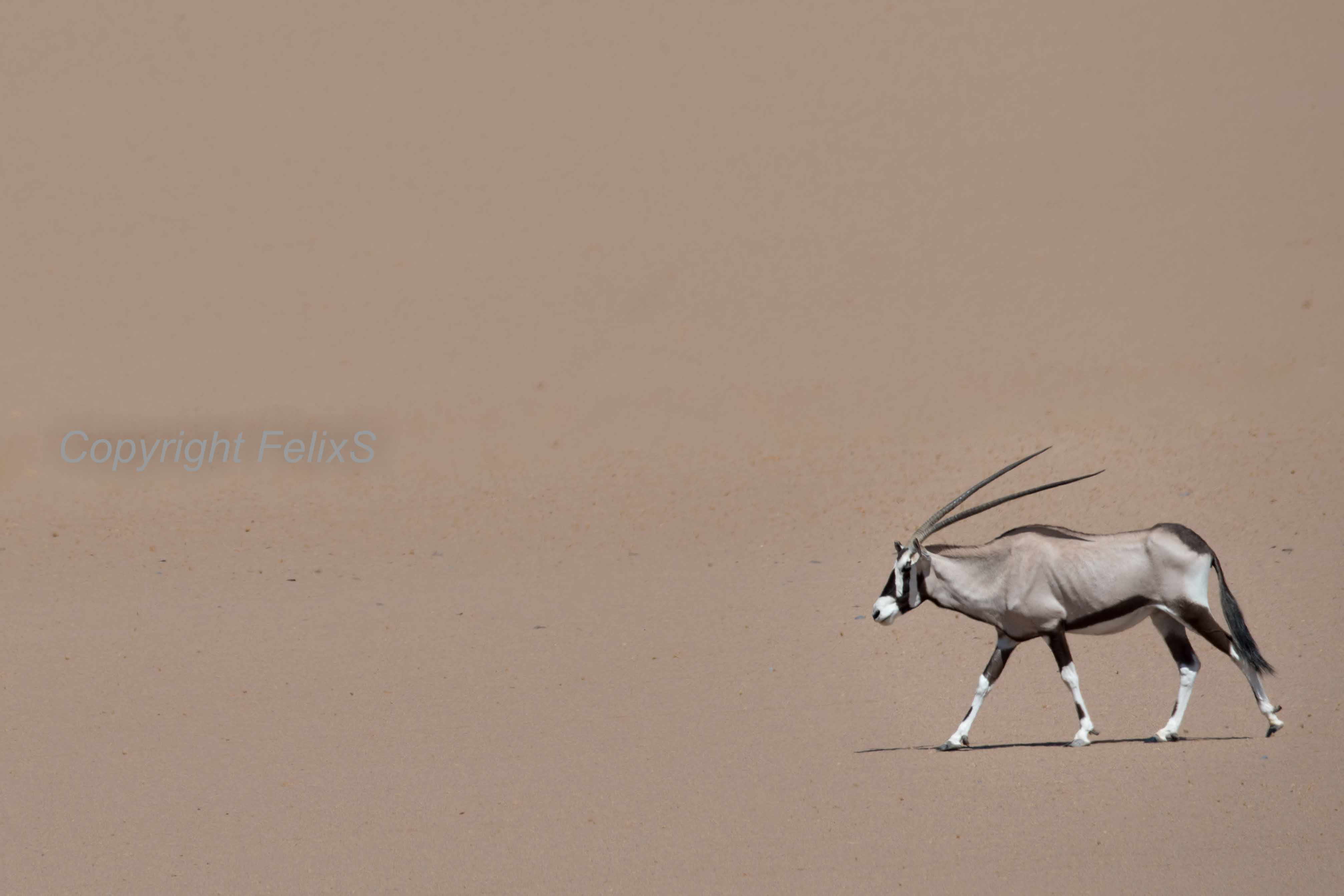
Oryx walk through the area, which always do well in this landscape.
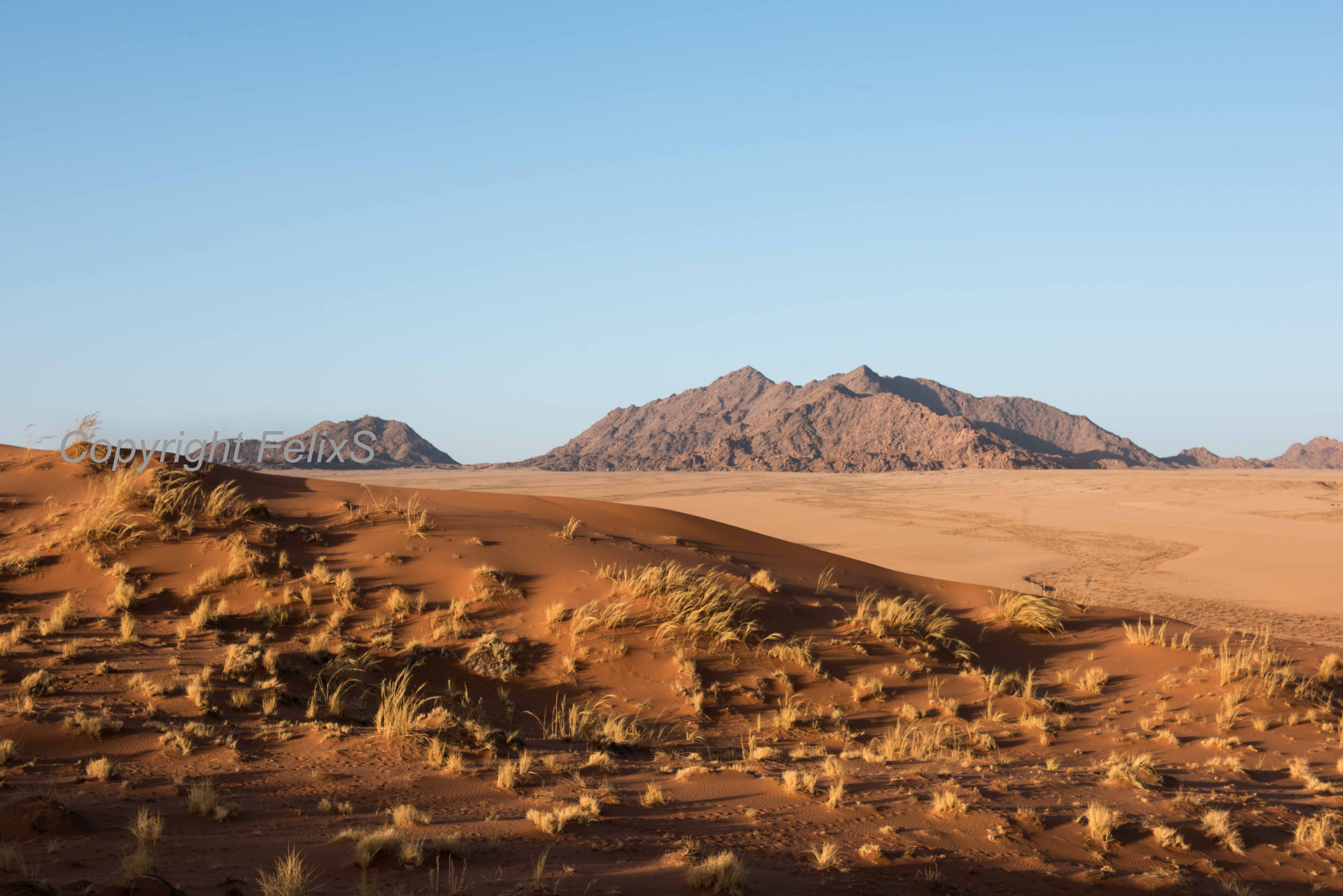
A place not to be missed is Elim Dune. To get there you have to turn right after the inner gate on a gravel road. You then arrive at a dune that is especially beautiful at sunset. You can also include the mountains behind the dune in your composition.
